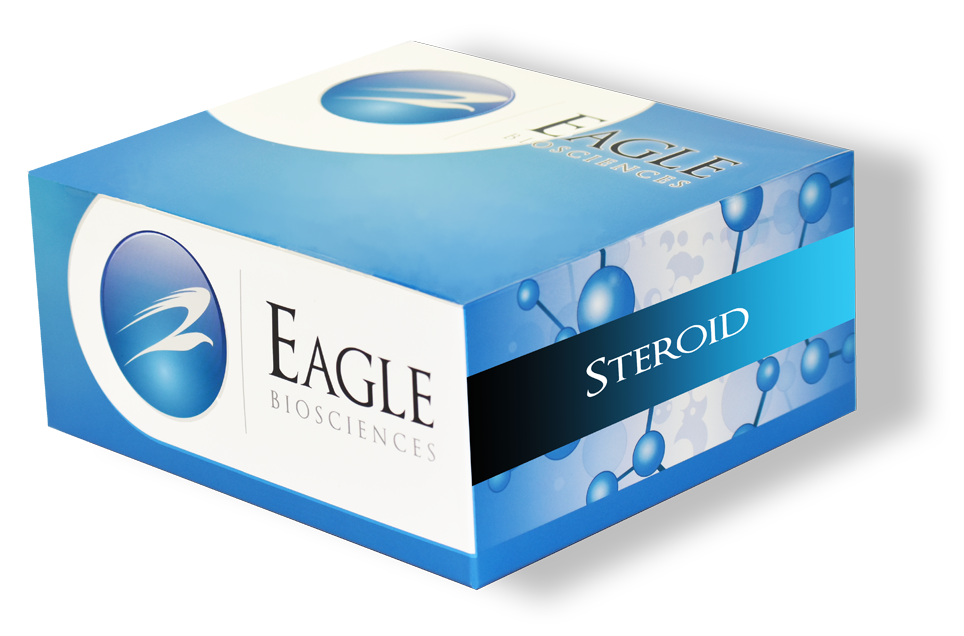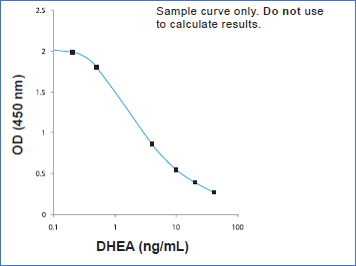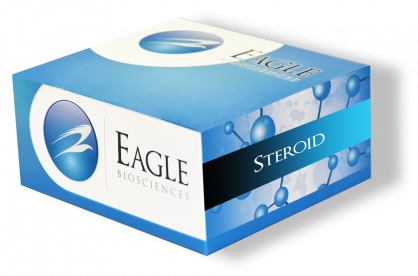DHEA ELISA Assay Kit
The DHEA ELISA Assay Kit is for research use only
Size: 1×96 wells
Sensitivity: 0.15 ng/mL
Dynamic Range: 0.2–40 ng/mL
Incubation Time: 75 minutes
Sample Type: Serum
Sample Size: 25 µL
Controls Included
Assay Principle
The principle of the following enzyme immunoassay test follows the typical competitive binding scenario. Competition occurs between an unlabelled antigen (present in standards, controls and patient samples) and an enzyme-labelled antigen (conjugate) for a limited number of antibody binding sites on the microplate. The washing and decanting procedures remove unbound materials. After the washing step, the enzyme substrate is added. The enzymatic reaction is terminated by addition of the stopping solution. The absorbance is measured on a microtiter plate reader. The intensity of the colour formed is inversely proportional to the concentration of DHEA in the sample. A set of standards is used to plot a standard curve from which the amount of DHEA in patient samples and controls can be directly read.



